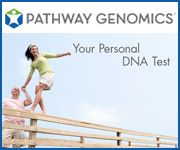Ancestry DNA Testing Guide
| Ancestry DNA Testing Summary
|
|
|---|---|
| What: Ancestry DNA test kits help individuals determine their ethnicity and lineage. | |
| Who: Anyone can order a test kit and have their DNA analyzed. | |
| Where: Test kits can be purchased online. | |
| When: Test results take several weeks to be returned to the user. | |
| How: STR and SNP markers in one’s DNA are analyzed to determine lineage. | |
| Type: Most test kits work with a saliva sample or cheek swab. | |
| Why: Ancestry can help one fill in blanks on the family tree or be used to claim race on a college application or in a question of citizenship, among other reasons. | |
| Time: The DNA sample is collected in seconds, while test results may take several weeks to be analyzed. | |
| Language: Not applicable. | |
| Preparation: No preparation is needed. | |
| Cost: Costs vary, but tend to range from approximately $99 to $600. | |
By: Erin Hasinger, Tests.com
Ancestry DNA testing is used to test one’s ethnicity. Tests may be used by people interested in learning more about their lineage for family tree research, or by people with specific goals. The New York Times, for example, noted that college applicants are using ancestry testing so that they may apply with minority status. Others use test results in claiming inheritances or in battles over citizenship.
Ancestry DNA tests, also referred to as ethnicity tests, are widely available. Most companies which offer this kind of testing send customers some sort of collection container, such as a cheek swab kit or a small vial that is to be filled with saliva. The collection kit is then returned to the company for DNA analysis. Testing can be different among companies. Some only analyze one’s paternal lineage, while others are able to perform analysis of both maternal and paternal lineages. Most DNA testing companies will analyze STR markers and SNP markers.
During analysis, short tandem repeats, or STR markers, are identified in the DNA. The number of each repetition found on a particular chromosome is different for everyone, and it is the number of repetitions that determines the number or value of the marker. Once the STR markers have been identified, they are then analyzed to see which markers are most commonly found in the DNA of people living in particular regions of the world. This information is used to make a determination of which lineages from which one is mostly likely descended.
Single-nucleotide polymorphism, or SNP, may also be analyzed in an ancestry DNA test. SNP is the name given to a mutation that occurs in a single nucleotide within a sequence of DNA. Mutation rates are low, and are also very helpful in providing further confirmation of one’s lineage.
There are no risks to having an ancestry DNA test, though some critics of the practice note that a DNA test may not reveal one’s entire lineage because ancestry may become diluted over several generations. Further, tests do carry some margin of error, and a small link to a continent may be found in error.
According to Kristine Ashcraft of Genelex, a genetic testing company, test results for one person in a family applies to all members of the same familial lineage. That means that of brothers and sisters, only one person’s results are necessary to determine the lineage of all siblings.
Ancestry DNA test kits range in price from $99 to over $600. Most kits can be ordered online through the company website. Following the online order, a test kit will be mailed to the purchaser’s home. The individual then can provide the collection sample – either saliva in a vial or a cheek swab – and return it to the company according to instructions provided in the original package. The sample will then by analyzed, and results returned to the individual. DNA test results often take several weeks to be provided, but the individual generally will receive some sort of certificate or chart that shows on a map where one’s ancestors are from.
To find an ancestry DNA test kit, please visit the Tests.com Ancestry DNA Test Directory.
Sources: New York Times, DNATribes, Ethnoancestry, Kristine Ashcraft




